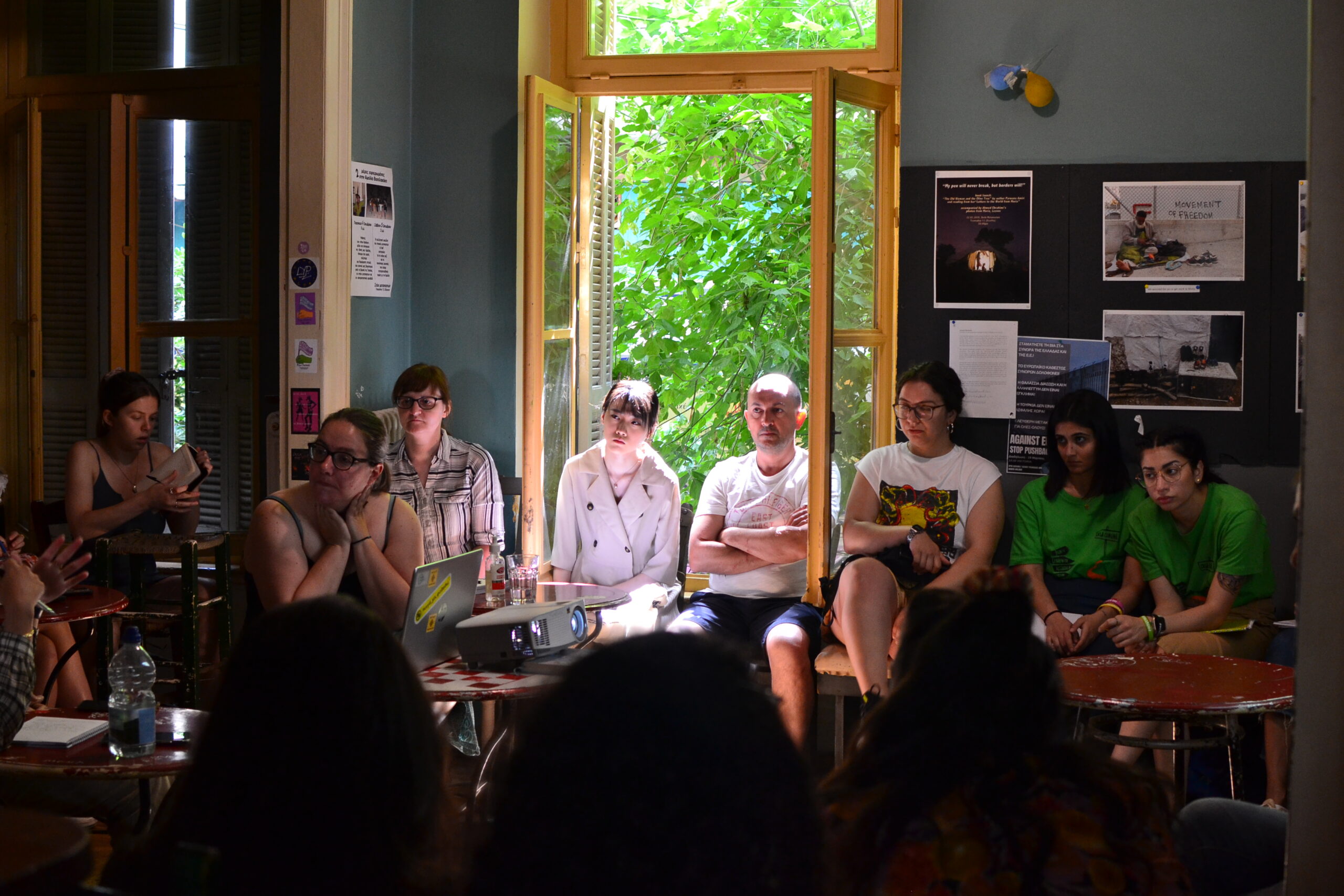
Transnational training of post-graduate students, activists and practitioners
Is there something unprecedented about the recent refugee flows in Greece and Europe? How is migration connected to police accountability and the Rule of Law in the country? How has organised civil society and grassroots actors been involved in refugee reception and integration? What are the main advocacy claims on the part of civil society? Through lectures, workshops, field visits, screenings and group work, the team of Inter Alia in collaboration with distinguished guest speakers placed these questions in an intersectional context. A team of 30 post-graduate students, activists and researchers inquired the role of gender and age as crucial identity markers that define the individual experience of migrants and refugees as well as their prospect of settlement and integration. The prevalence of politics and political will over administrative questions were flagged as a key factor for putting forward sustainable, humane and decentralised policies.
Day 1: Migration, identity & history
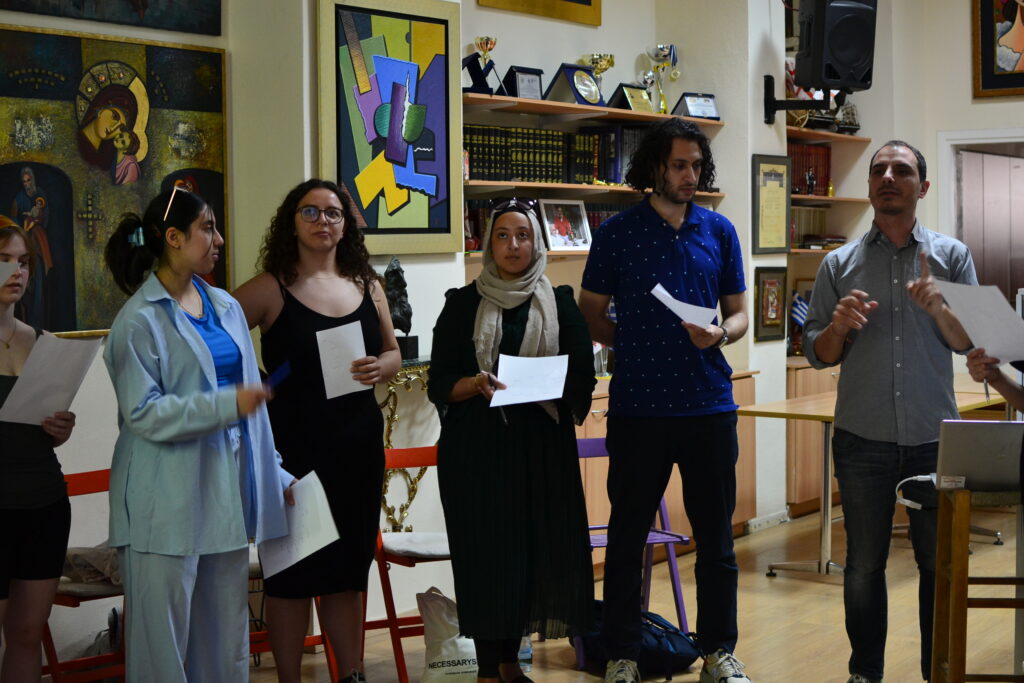
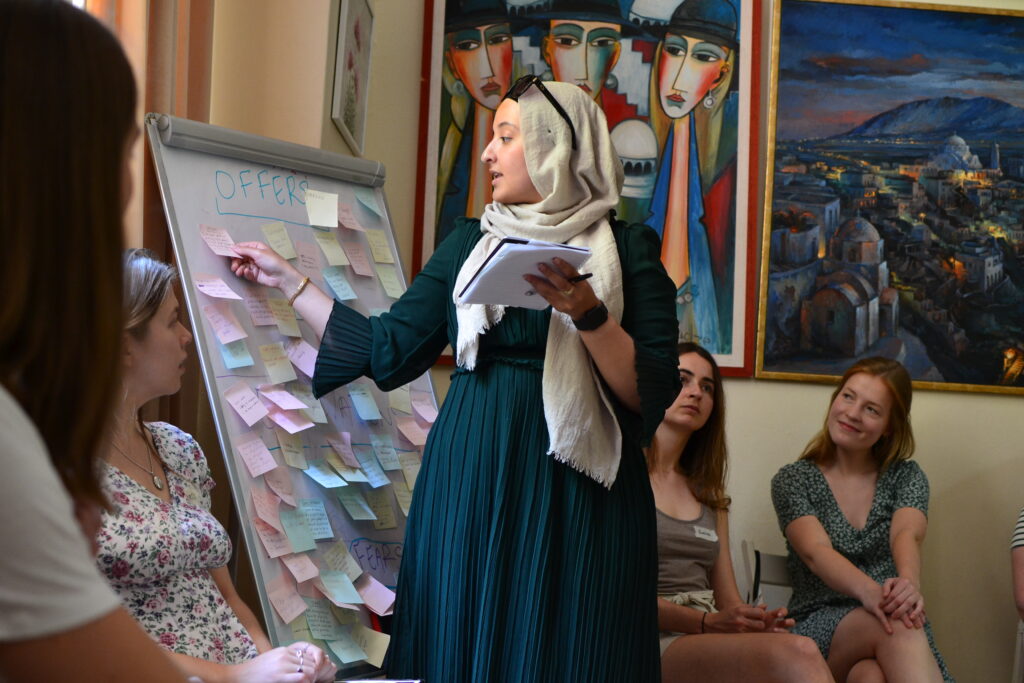
Lecture by Kostis Karpozilos, director of the Archives of Contemporary Social History

Day 2: The refugee question in the troubled context of Greece
Lecture by Eleni Takou: Pushbacks, cover-ups and police accountability in Greece
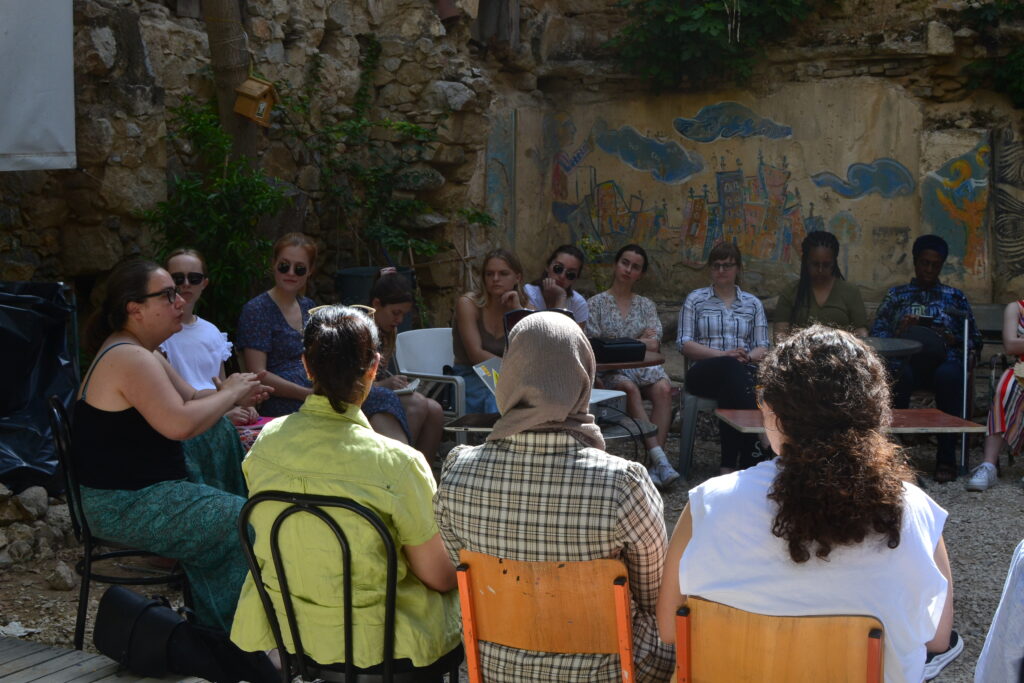
Presentation and discussion with the Athens Coordination Center for Migrants Refugees

Day 3: From state policy to personal experience
Objects telling the stories of others: Non-formal learning activity from the education materials of Outcast Europe

Claudia Lueders (teaching fellow in Politics at Oxford-Brookes University): Nationalism in the Context of Migration

Lefteris Papagiannakis (director of the Greek Council for Refugees, former deputy mayor for migrants and refugees): Introducing ongoing legal struggles with the Greek state
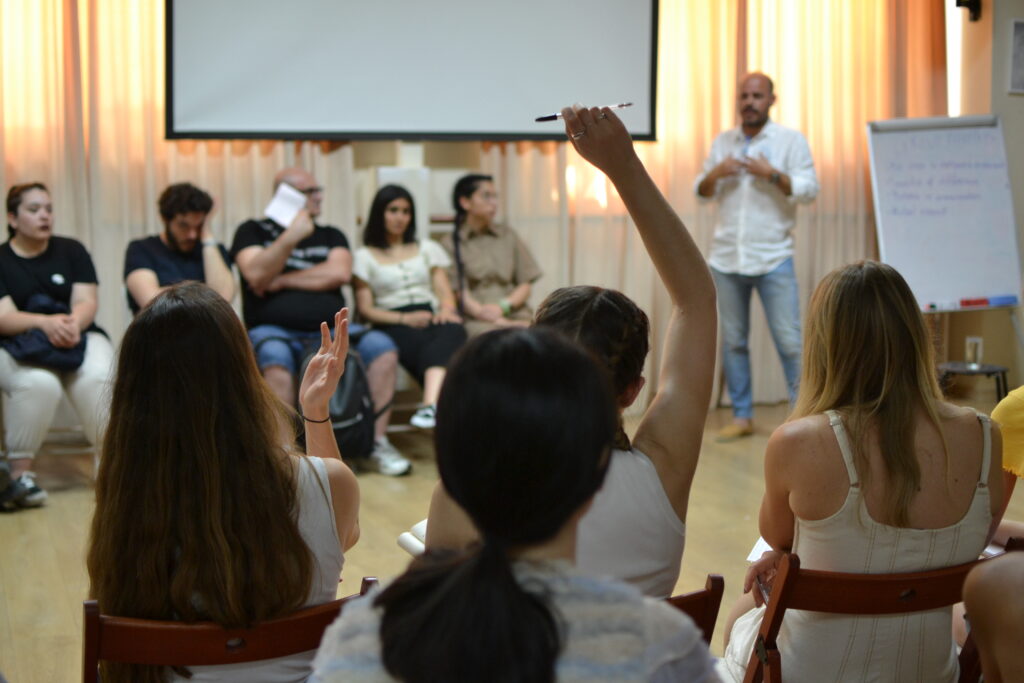
Migration in an intersectional context; Screening of PDSFF favourites
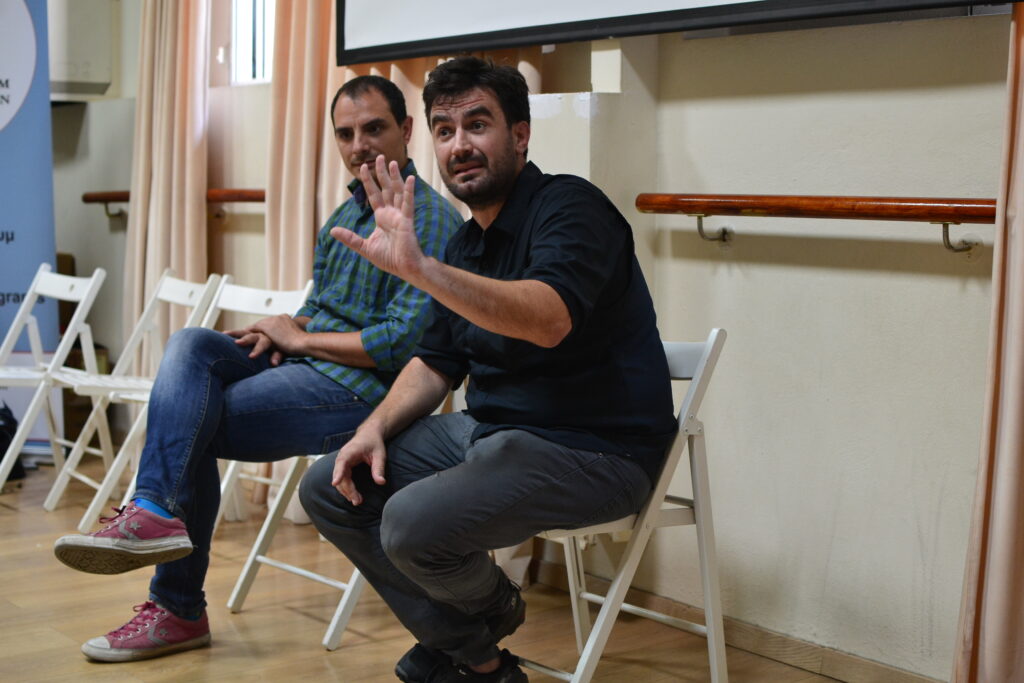
Day 4: Focusing on the rights of children and young migrants & refugees
The Gordian knot of second generation children and youth in Greece
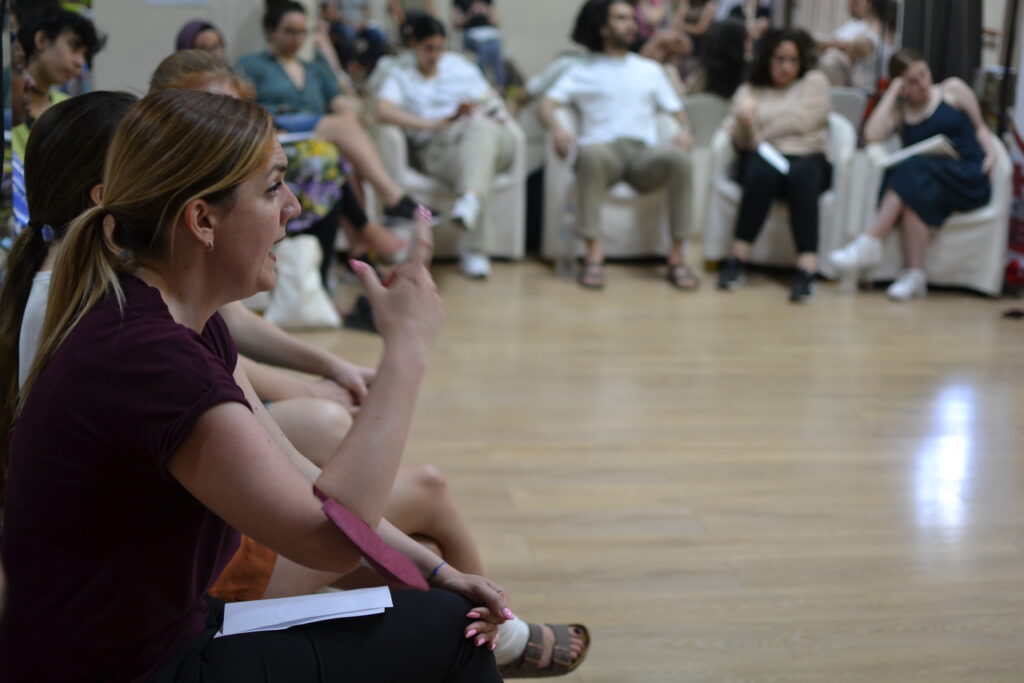
Field visit at the Network for Children Rights
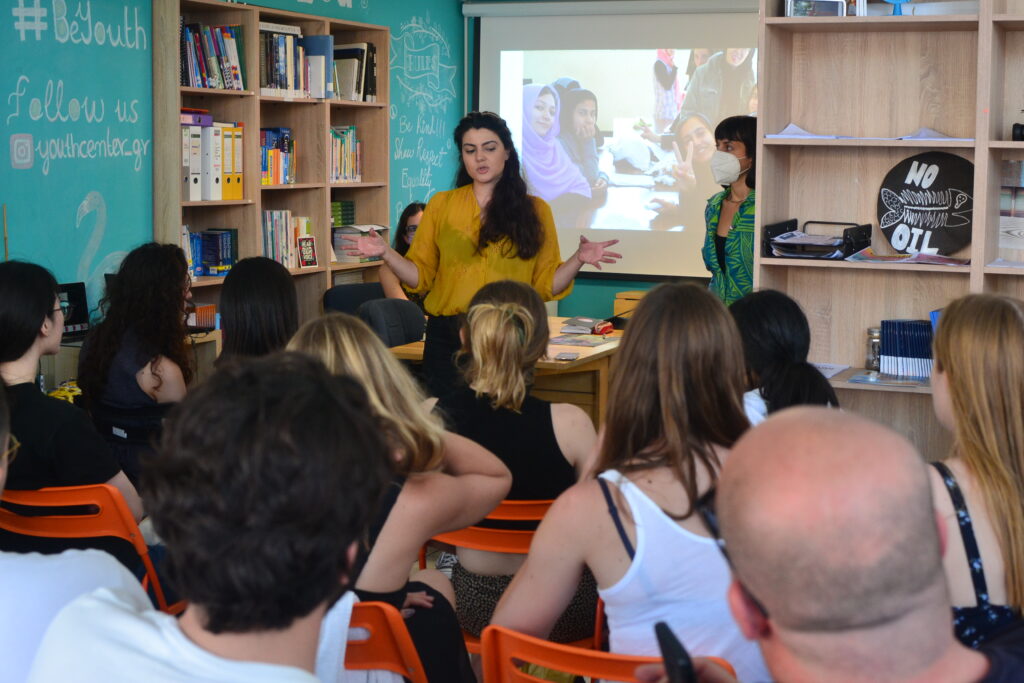
Day 6: Field Visits
@DIOTIMA discussing the threat of gender based violence for female refugees

“Who is the contemporary Athenian“: visit of the exhibition organised by the Co-laboratory for Citizenship of the Victoria Square Project

To know more about “Rethinking Migration in Europe” circle of trainings, contact Nikos at papakostas@interaliaproject.com or Boyka at boneva@interaliaproject.com.





